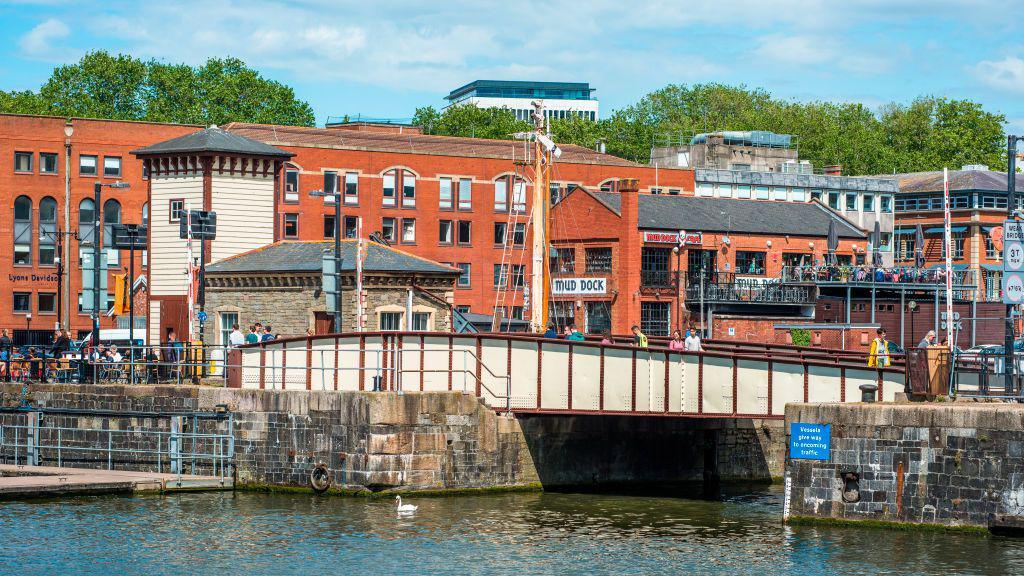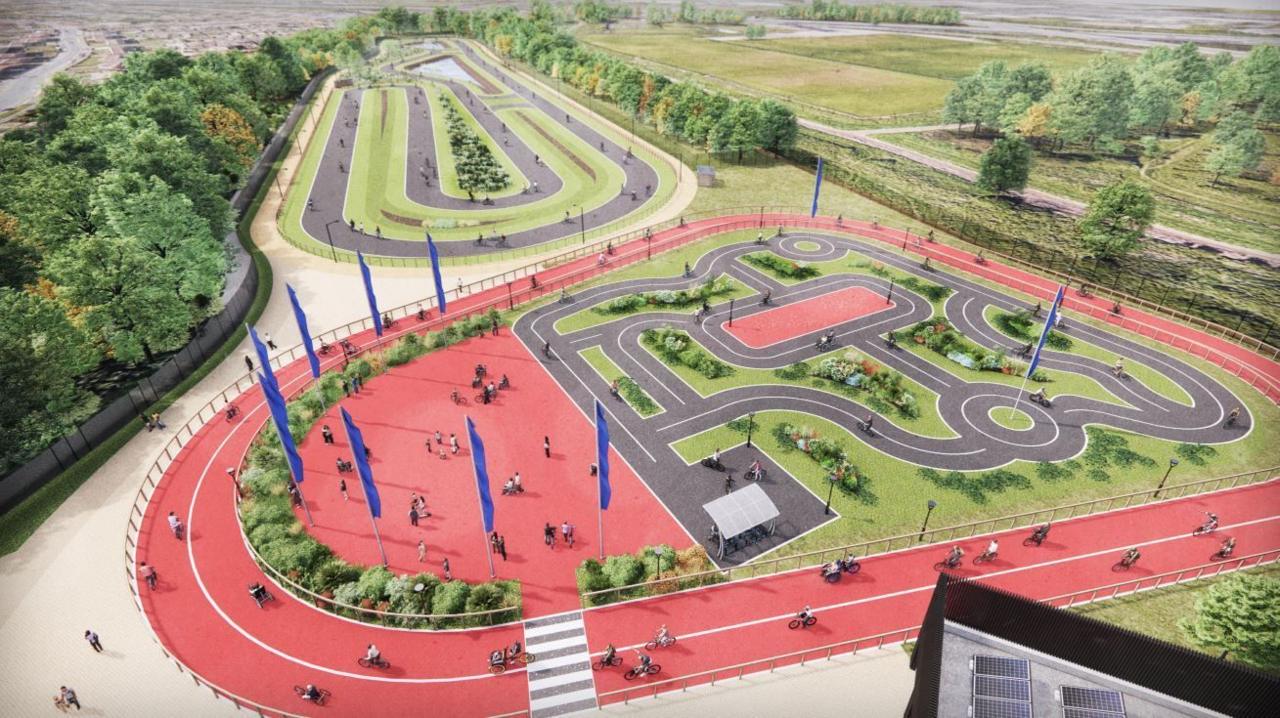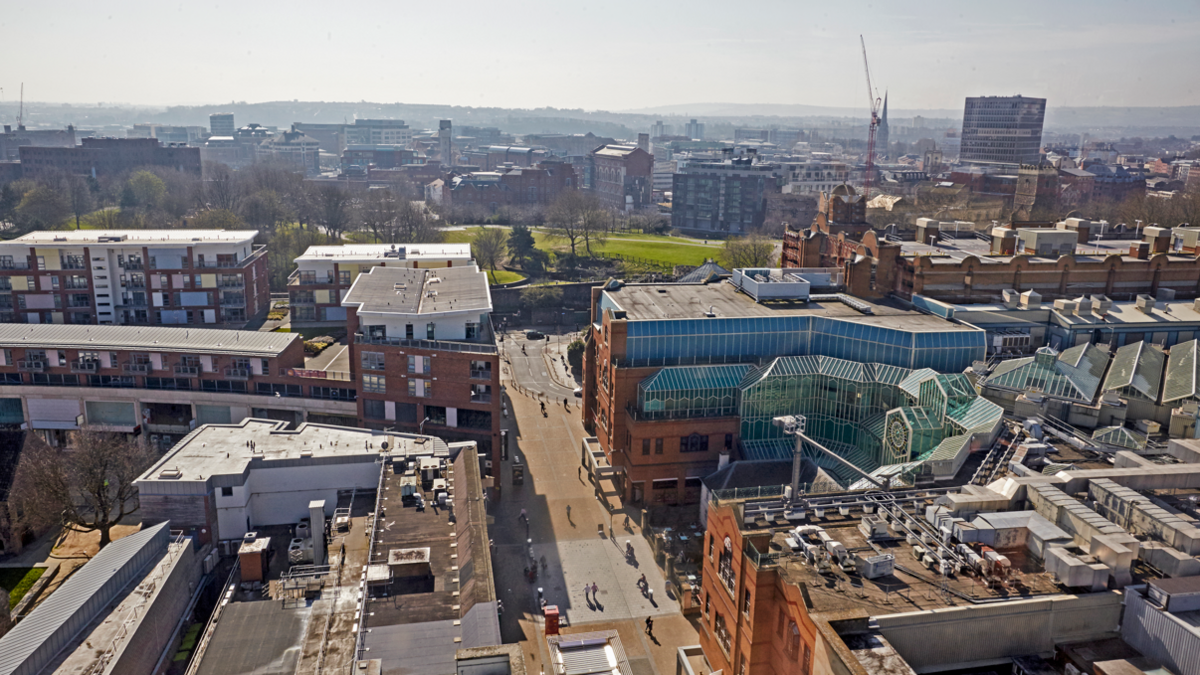Cars to be banned from city centre swivel bridge

The swivel bridge is currently open to vehicles in one direction
- Published
A Grade II-listed swivel bridge will be closing to cars under new plans to promote active travel.
The Prince Street Bridge on Bristol harbour is crossed by approximately 24,000 pedestrians and cyclists and 1,700 vehicles daily.
The bridge is only open to southbound traffic but will become fully pedestrianised as part of a £2.3m scheme to promote active travel in the city.
"With more people travelling sustainably, we can cut congestion, improve health and wellbeing, and support the city's journey toward becoming carbon neutral," said Councillor Ed Plowden, chair of the transport and connectivity committee.
The plans will also see 20 more cycle hangars installed in the city, an expansion of schemes to create "traffic-free zones" during pick-up and drop-off times and improved cycle and walking routes towards Temple Quarter.
"The A4 Bath Bridges project could include new infrastructure, such as a new pedestrian and cycle bridge or bridges between the Three Lamps junction and Cattle Market Road," said Mr Plowden.
The money has come from the West of England Combined Authority (WECA) who were recently awarded more than £4.6m from the Department of Transport to promote more walking and cycling.
The rest of the funding - which includes a further £160,000 from the combined authority's Investment Fund - will go towards schemes in the wider region.
"We all want better, safer walking, wheeling and cycling routes across the West for people's everyday journeys," said WECA mayor Helen Godwin.
"Getting the basics right now by improving our walking and cycling infrastructure, and fixing our roads and bridges, will lay the foundations for a better transport system overall for our part of the world," she added.
Get in touch
Tell us which stories we should cover in Bristol
Follow BBC Bristol on Facebook, external, X, external and Instagram, external. Send your story ideas to us on email or via WhatsApp on 0800 313 4630.
- Published30 May

- Published29 May

- Published3 January
